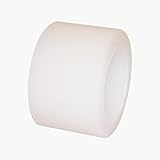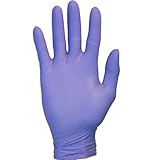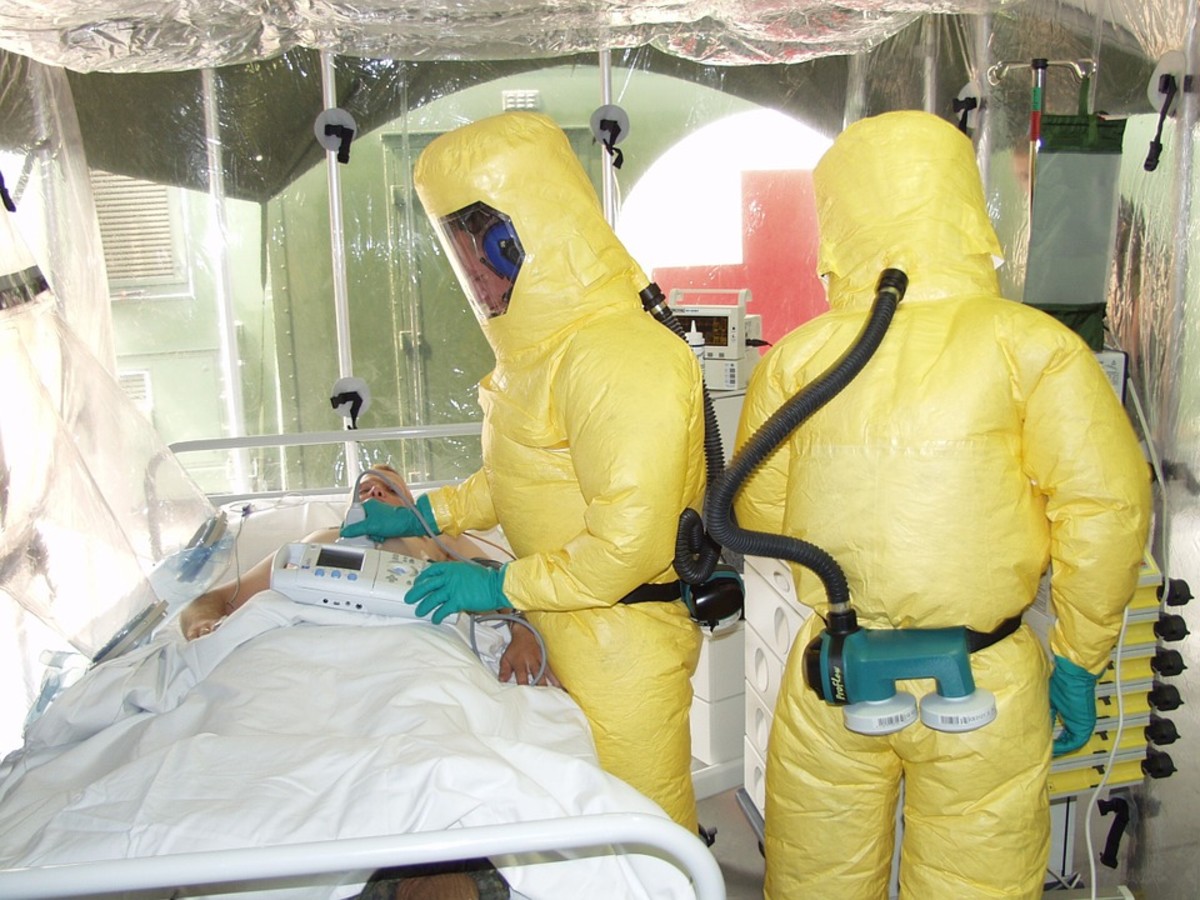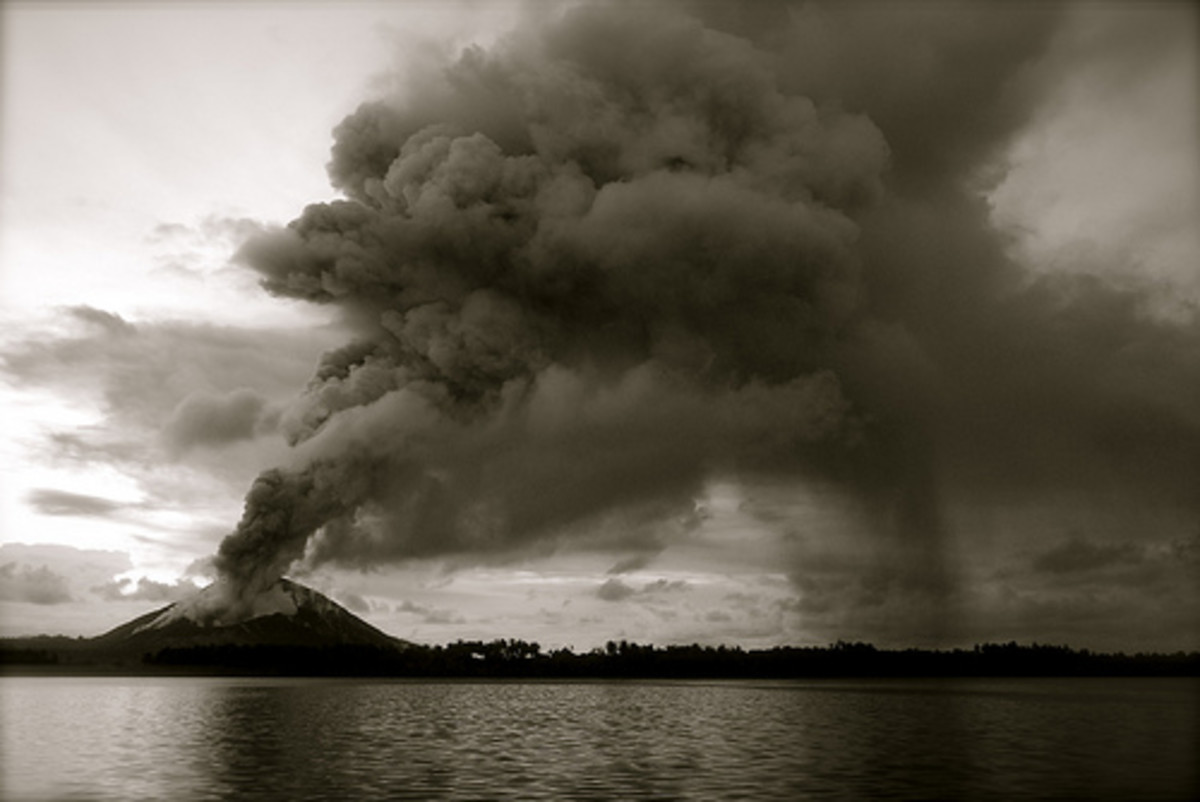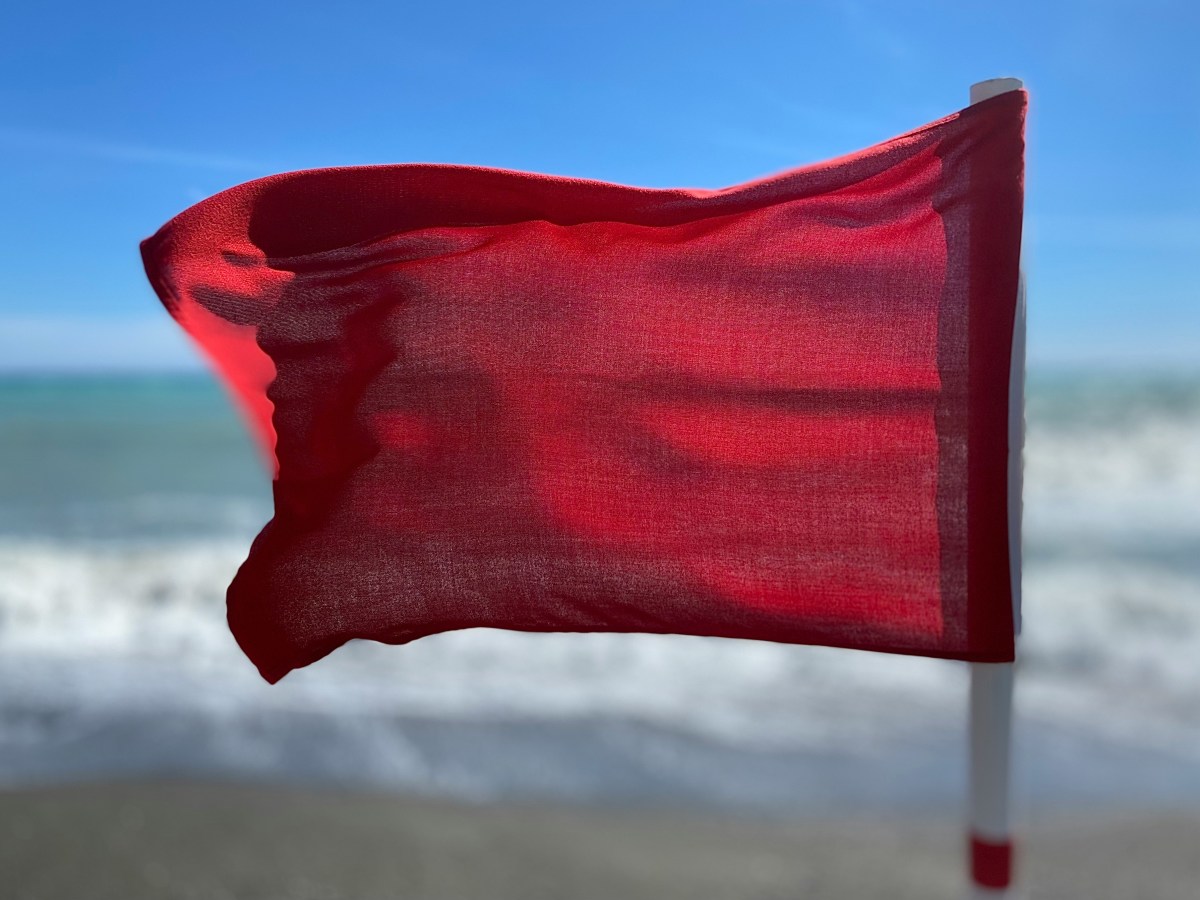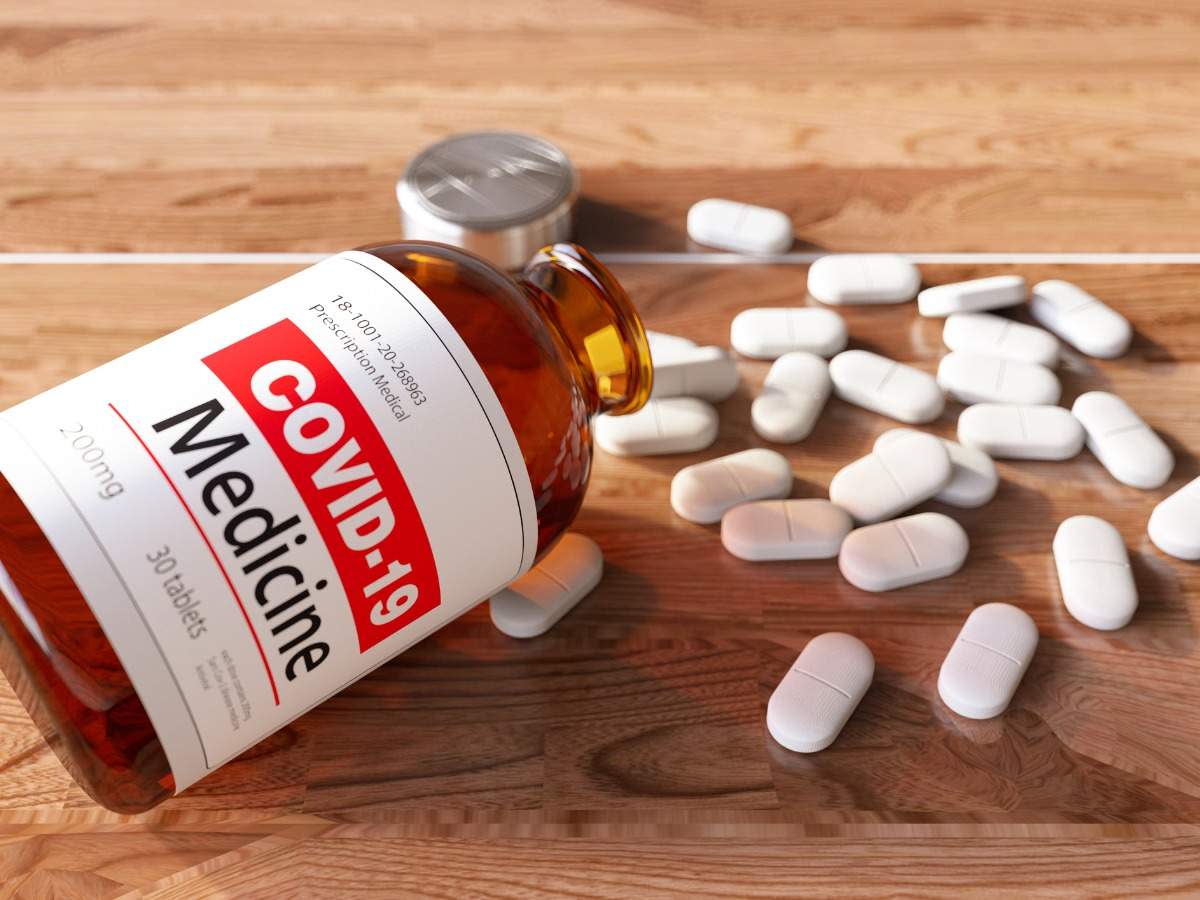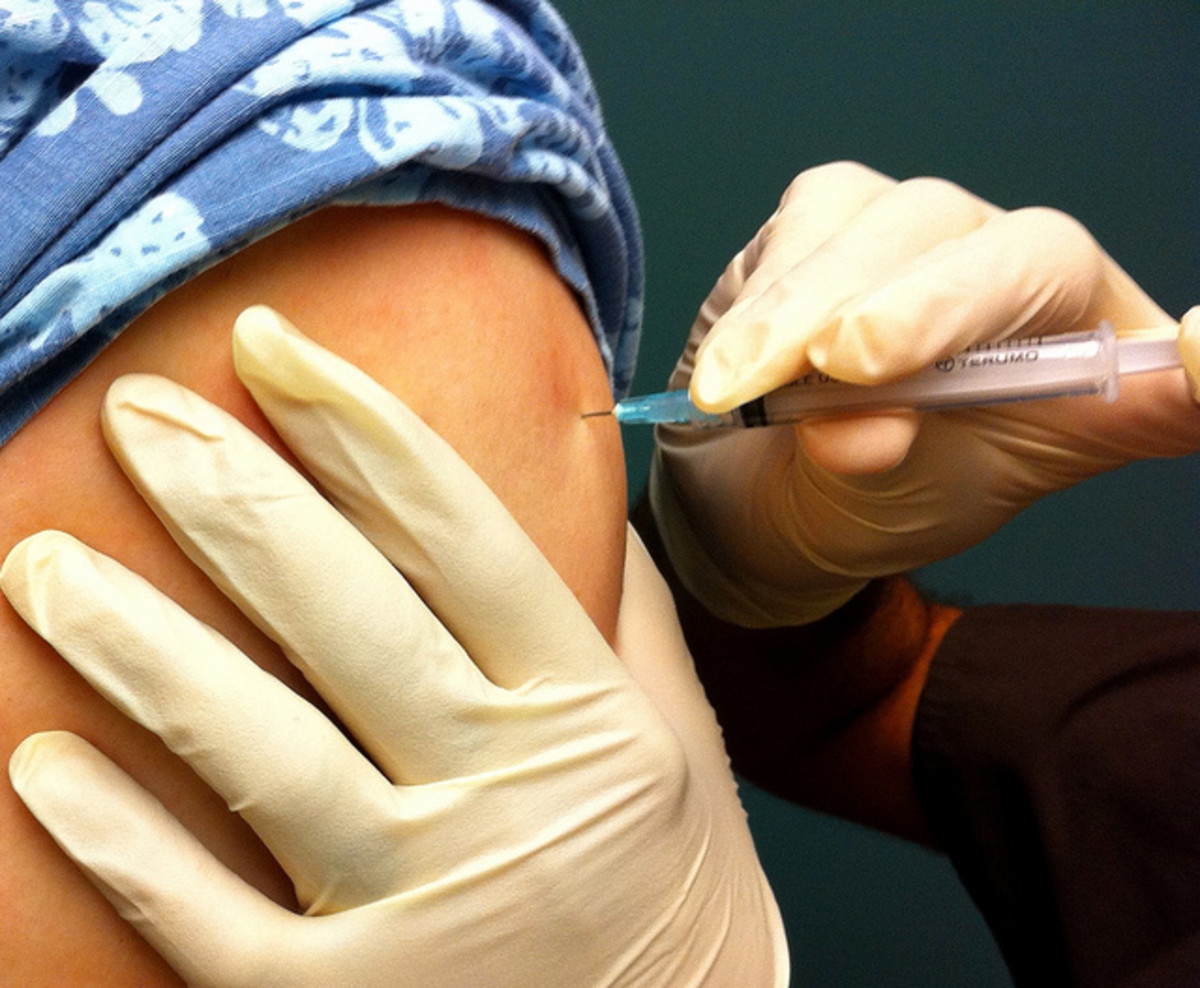How to Protect Yourself from the Ebola Virus
Full Body Protection from Bodily Fluids of Ebola Virus
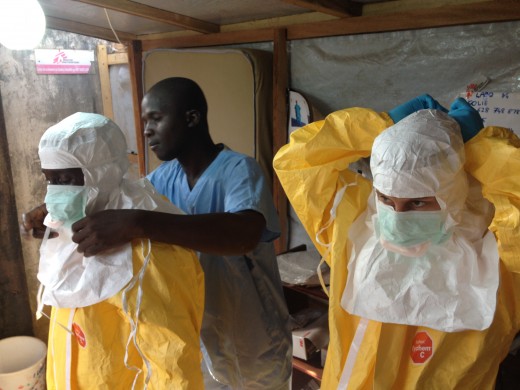
Protect Yourself from the Ebola Virus
Ebola is believed to spread through contact with the bodily fluids, or blood, of an infected person. Only about 30 percent of the people who catch the virus will survive it. There is currently no cure for the virus. Therefore, we all need to take this virus seriously. Learn how to protect yourself and your family if or when the deadly virus spreads to your region. This article contains valuable information that is backed by research.
If you believe that someone is infected with the Ebola virus, avoid contact with them. Do not shake people's hands who might be infected. Wear full body protective gear that covers you from head to toe. Protective gear should include a face mask, hair cap, protective glasses, an isolation gown, gloves, and shoe covers. Wash your hands frequently and sanitize with an alcohol-based sanitizer.
Do not touch anything that might have come in contact with an infected person. This could include their bed linens, clothing, furniture, pets, dishes; quite literally anything they may have come in contact with! Avoid contact with bats and nonhuman primates. Do not eat the raw meat of these animals.
Ebola Fact Sheet
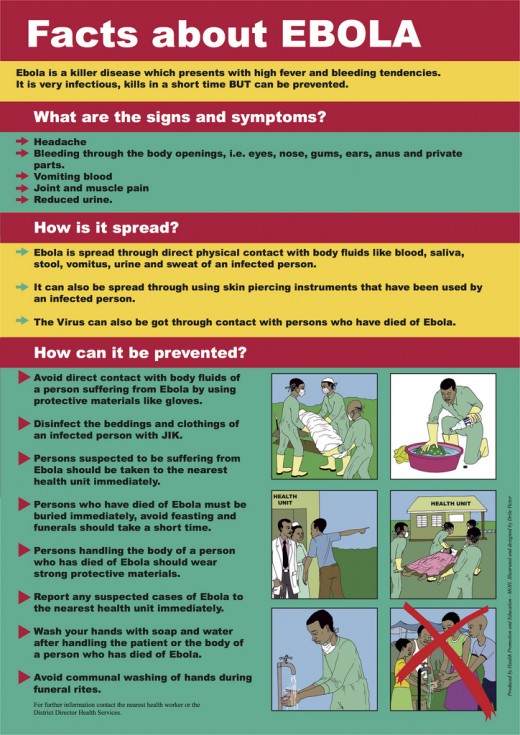
Do Not Touch a Person who has Died from Ebola
Never come in contact with the body of a person who has died from Ebola. One reason that the virus is spreading so quickly in Africa is because of the people's burial rituals where they wash the body and lay their hands on the departed.
These burial customs have contributed to the spread of Ebola in Africa. According to PBS Newshour, the World Health Organization is working to come up with safer burial practices which still take into account the local customers.
The Ebola Virus - Is the Government doing enough?
Are you Confident that the Government is doing everything it can to protect us from Ebola?
Avoid Hospitals Caring for Infected Ebola Patients
Hospitals which are caring for Ebola patients should be avoided. Find the next closest hospital to receive care of non-ebola illnesses. To find out where an available hospital is located, contact the U.S. Embassy or consulate.
However, if you become infected with Ebola seek medical assistance immediately. Isolate yourself from other people, and do not travel, until you receive medical aide from a doctor. Symptoms to look for are a temperature of 101.5F/38.6C, headache, muscle pain, diarrhea, vomiting, stomach pain, unexplained bruising, or bleeding.
Symptoms of Ebola Virus
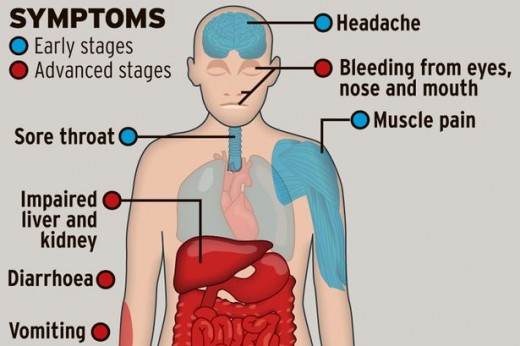
Disinfect Anything that an Infected Person has Touched
Likely, if someone you know has been diagnose with Ebola, the CDC will send a decontamination team which will disinfect their dwelling. However, in a larger outbreak they may not be able to send a team to everyone's house or apartment. Therefore, you may need to disinfect the dwelling yourself.
Disinfect the bed sheets, towels, and mattress used by an infected person, along with anything else that they may have come in contact with. Isolate any pets which may have contracted the virus. Contact officials immediately about having these pets removed from the home to a treatment center. According to the Public Health Agency, the Ebola virus is susceptible to heat, alcohol-based products, household bleach, and bleach powder such as Comet.
To clean blood or bodily fluids, the World Health Organization recommends "flooding the area with a 1:10 dilution of 5.25% household bleach for 10 minutes for 10 minutes for surfaces that can tolerate stronger bleach solutions (e.g., cement, metal)." Careful cleaning of stains is recommended for surfaces that are corrosive or that may discolour with a 1:100 dilution of 5.25% household bleach.
Note: Nurses who are caring for Ebola patients are taking showers, with a bleach solution, right after each interaction with the patient. It is important to disinfect as quickly as possible.
Limit your Travels
If you live close to an area where the Ebola virus has spread, limit your travels and stay isolated at home as much as possible.
For my family, this means that my husband will go to work and back, without making any other unnecessary stops. We have taken our children out of their regular sports and dance activities. I am keeping them at home without making any ventures out unless it's to the grocery store. We're avoiding any nonessential contact with others until the outbreak in the Dallas area is under control.
Keep your flights to a minimum during this time. Check the Travelers' Health Ebola web page for current travel notices and other information that the CDC has issued for travelers.
Wash Yourself with Alcohol or Household Bleach
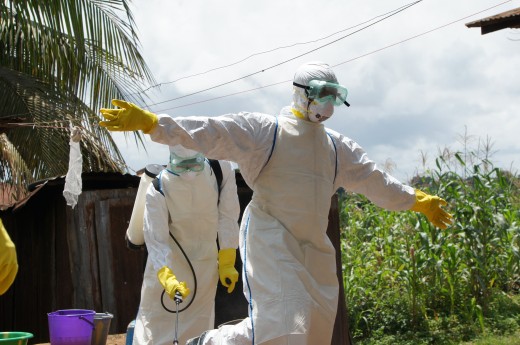
Sequence for Putting on Personal Protective Equipment
The CDC has published a helpful guide which shows, with detailed pictures, the appropriate sequence to put your personal protective equipment on. It is important that you follow these instructions carefully. To view the CDC PDF, CLICK HERE.
Protecting your Face
Protect your face from bodily fluids by wearing a face mask, protective gloves, and a hair cap.
Choose a pair of protective goggles which comfortably fit over your glasses. If you purchase a full face respirator, below, the use of protective goggles may not be necessary. However, these are useful to keep on hand when the respirator is not being used.
A bouffant cap keeps your hair and scalp from being exposed to bodily fluids. Look for a hair cap that has a liquid repellent.
Antiviral face masks use three different ingredients to inactivate flu viruses, including: citric acid, zinc, and copper. In addition to a face mask, some may go a step further and use a respirator which is recommended by the Public Health Agency. Read more about why you might need a respirator, in the future, to protect yourself from the Ebola virus, below.
Full Body Protective Kit - Click the Link Below this Picture
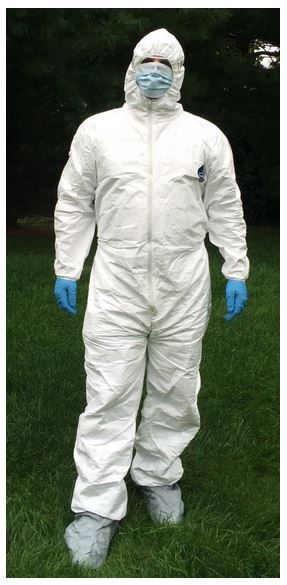
Face Mask or Full Face Respirator?
Today, the Ebola virus spreads through direct contact with bodily fluids, such as blood, saliva, or vomit. However, according to CNN Health "some of the nation's top infectious disease experts worry that this deadly virus could mutate and be transmitted just by a cough or a sneeze".
There is no other known virus that has dramatically changed its mode of transmission. Ebola could mutate into an airborne disease. Every time it passes from person to person it makes copies of itself and makes one or two mutations.
If the disease becomes more widespread, scientists say that the threat of mutation increases. In 1989, there was an Ebola Reston outbreak among monkeys. The monkeys transmitted the virus to each other by breathing. In 2012, Ebola Zaire, which is involved in the current outbreak, was shown to pass from pigs to monkeys through the air.
Researchers have detected over 300 genetic changes in the disease since the outbreak, in just three weeks. Even without the virus being airborne, it has more than overwhelmed efforts to stop it from spreading. There have already been over 7,000 cases of Ebola and over 4,000 deaths.
Dr. Michael Osterholm, director of the Center for Infectious Disease Research and Policy at the University of Minnesota, stated (about the Ebola virus becoming airborne), "I can't imagine anything in my career -- and this includes HIV -- that would be more devastating to the world than a respiratory transmissible Ebola virus."
In the near future, full face respirators may be essential for protecting yourself against the Ebola virus.
Fluid Resistant Medical Tape
Medical Tape
Medical tape can be used to secure openings which may be found in your protective gear. Make sure that you purchase medical tape which is fluid resistant.
According to Boston Health, the Dallas Presbyterian Medical Center's nurses were asked to use medical tape for this purpose.
I believe also reading that some nurses used the tape to cover any exposed areas of skin, such as their neck, to protect themselves from the Ebola virus.
Protecting your Body
Protect your entire body from bodily fluids by wearing an isolation gown, gloves, and shoe covers.
An isolation gown should be fluid resistant, with elastic cuffs that fit over gloves, and full length to provide maximum coverage. The front of your gown should be solid with no openings or closures that would otherwise allow exposure to occur.
Latex free gloves are are usable by most people who are allergic to latex. Make sure your gloves are the right size, thick, easy to put on, and will not tear easily.
Shoe covers protect your shoes to limit the amount of exposure to bodily fluids to your shoes. While the package may say that you can use these more than once, obviously this would not be wise! Dispose of the shoe covers after each use when exposed to someone who potentially has the virus.
Ebola Virus - Protect Yourself
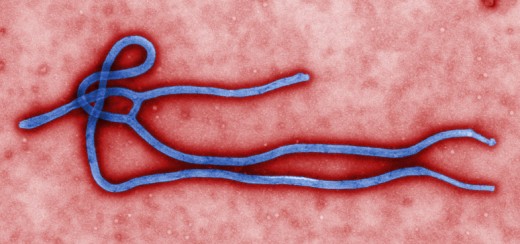
Where to Buy Fluid Resistant Protective Gear?
The best place to buy fluid resistant protective gear is online, while supplies last. Obviously if there is an outbreak it will be increasingly difficult to obtain fluid resistant protective gear as the demand for these products will increase.
Search the following places:
Ebola Virus
Are you prepared to protect your family from the Ebola virus?
Ebola Protection Kit
Please rate this Article
Comments Please...
Do you have any helpful information that would support us in protecting ourselves from the Ebola virus? Please let us know where you got your information so that I can provide sources for my readers.


